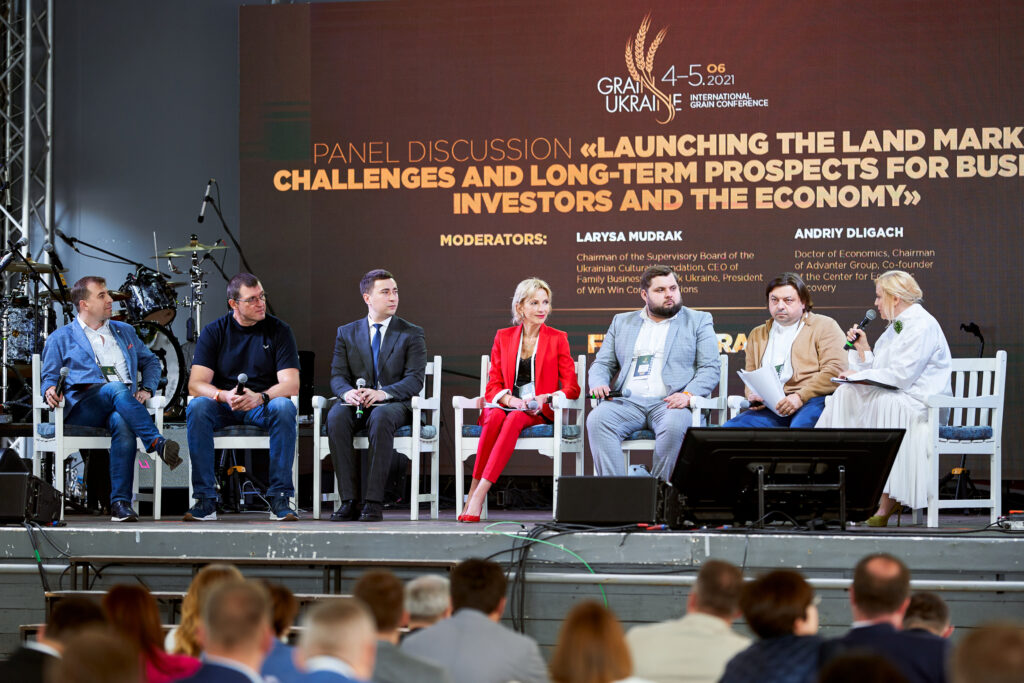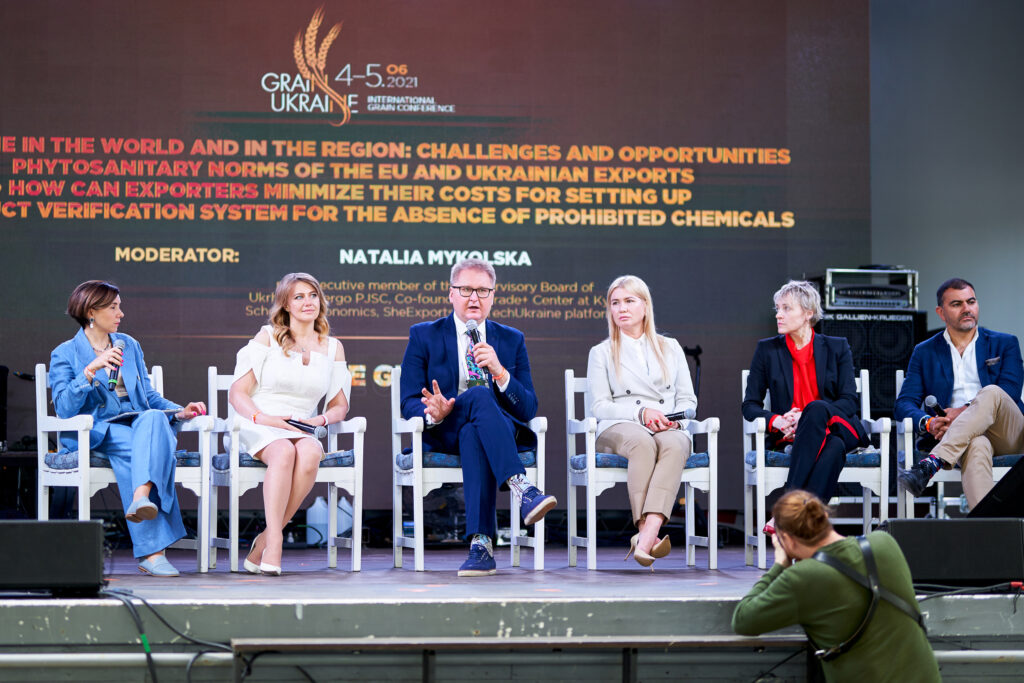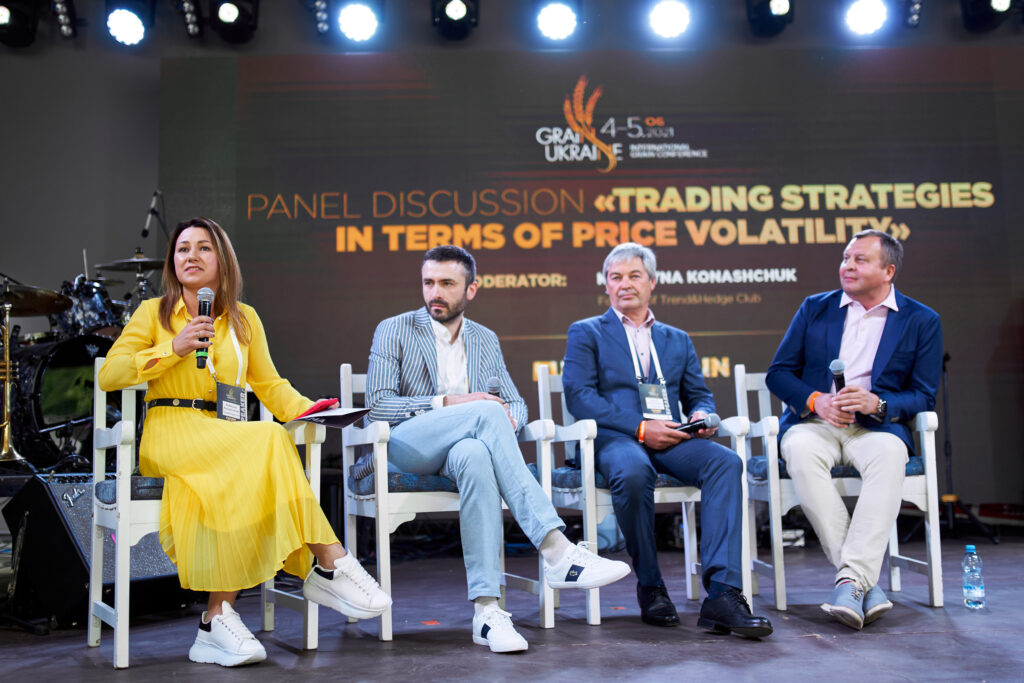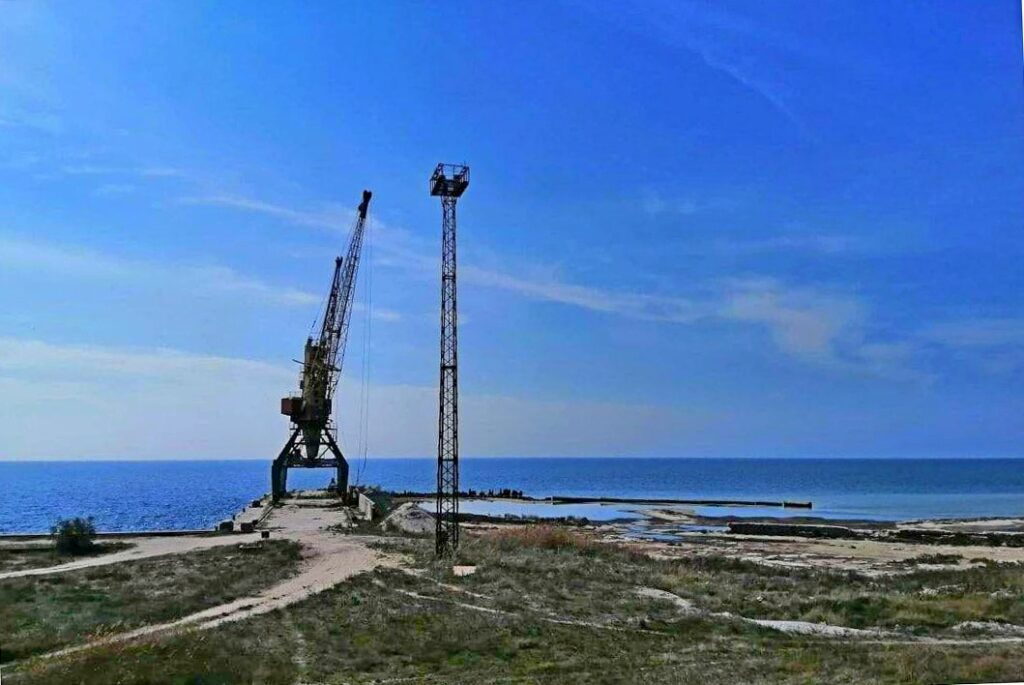Grain Ukraine: how the grain market future is created


In June the largest meeting of grain market players in 2021 — International Conference Grain Ukraine — hitted its 6th year. 37 speakers and 600 participants gathered in Odessa to find answers: what is the future of the grain market and how to impact it now.
Land market launch and investors interests
Last several years the Ukrainian land market launch determines the conference topic and the Ukrainian agricultural industry future. Andriy Stavnitzer, founder of the conference and co-owner of TIS Terminals Group, noted in his opening speech, that this is the first meeting with the open land market in Ukraine. “You know, for me personally, this is almost Passover — the day of Jews liberation from Egyptian slavery. Later, they met many problems there, but the episode itself has been recorded in history for several thousand years and is celebrated as a great holiday,” he commented.

Roman Leshchenko, Minister of Agrarian Policy and Food of Ukraine, assured that all necessary legislation has already been approved for the working land market. He emphasized key points of the Agrostrategy-2030: in addition to the land, they are irrigation, infrastructure, high-margin products, organic production, and food safety. In the opinion of Roman Leshchenko the main tasks of the Ministry are investments and a favorable environment for agricultural business development. Yevhen Osypov, CEO of Kernel, named the land market launch a fundamental factor for the Ukrainian agricultural sector investment attractiveness and development. According to Ivan Miroshnichenko, investor, public figure, politician, Ukraine needs to restore trust of investors and give them a clear understanding of the state strategy for industry development.

Olga Balytska, Head of Land Resources and Real Estate Practice, PwC Legal Ukraine, said that an important factor in investment attractiveness is the security for foreign investments, provided by the judicial system, guaranteed by the state. Dmytro Lyvch, Advisor to the Prime Minister (on pro-bono basis) in the Secretariat of the Cabinet of Ministers of Ukraine, Head of Analytics at EasyBusiness, Head of Analytics Department of the Center for Economic Recovery, considered land as a financial instrument in European markets. In his words several components affect its value: profitability of land as an asset, ratio of profitability to risks, and investment environment, these factors will shape the fair price in the land market.
Expansion of export
Natalia Mykolska, non-executive member of the Supervisory Board of Ukrhydroenergo PJSC, Co-founder of Trade+ Center at Kyiv School of Economics, SheExports and TechUkraine platforms, said that at the end of 2019-2020 Ukraine became the world’s second largest grain exporter after the US and it is now regarded as one of global food security guarantors. More specifically by crops, the second global export place — for barley, the fourth — for corn, and the fifth — for wheat.

According to Taras Kachka, Deputy Minister of Economic Development, Trade and Agriculture, the ministry’s work on international trade goes exactly to plan. It continues to work with European experts to update the agreement with the EU, including its trade part. Its tariff part will be updated before the Ukraine-EU Summit in October 2021. Taras Kachka added that if Ukraine wants to develop the market in terms of grain quality and proper storage, the main strategy should be predictability of the country as a trading partner.
Vladyslava Magaletska, Head of the State Service of Ukraine for Food Safety and Consumer Protection, stated that the SSUFSCP has opened 10 new markets for Ukrainian farmers over the past 7 months, partly Japan, Kuwait, Libya, Syria, Algeria. In addition, a huge number of documents are being renegotiated on those 63 markets where Ukraine is already working.
The moderator of the Future Grain panel discussion Andriy Dligach, Doctor of Economics, Chairman of Advanter Group, Co-founder at the Center for Economic Recovery, proposed to look 10 years ahead and answer how Ukraine can meet the growing global need for food. Yevhen Osypov believes in the harvest potential of 130-140 million tons of grains and oilseeds, and that Ukraine can reach such a volume within 5 years. With the increase in production, there is a need to strengthen Ukraine’s position in the main sales markets. Among the most promising directions for export they mentioned Asian markets needing a large supply, namely China, Pakistan, Iran, Saudi Arabia, Indonesia, Vietnam. According to Igor Osmachko, CEO and CCO at Agroprosperis Group, thinks that special attention should be paid to the Chinese market, and we need to monitor its inner demand. A great need for barley is connected to intensive growth of pig breeding in China. Demand for Ukrainian wheat is increasing from Pakistan and Indonesia. Also, according to the speaker, Ukraine holds a leading position in supply of non-GMO soybeans, and this is a good way to diversify. Roman Rusakov, Trader of the Black Sea region, Olam International, stated that Ukrainian corn has high trust in Iran. Bohdan Kostetskiy, Operational Partner of Barva Invest trading and analytical company said that Vietnam is a promising market consuming more than 20 million tons of grain and producing less than 5 million tons, and South Korea becoming an important destination for the sale of feed wheat again.
Financial instruments
Special financial instruments, in particular forward contracts, are an important component of efficient grain trading. Participants of the panel discussion “Conclusions made from defaults and lessons for the future” agreed that this type of contracts evolution is very relevant for the Ukrainian market. According to Volodymyr Osadchuk, CEO of COFCO Agri Ukraine, today a forward for a commodity producer is the only tool that allows to secure a profit. The whole world trades “forward”, in Europe and South America, sales of not yet harvested crops sometimes reach 90%, several times higher than in Ukraine. The international company COFCO Agri Ukraine has about 35% forward contracts. Tetiana Alaverdova, Director of Sales Department, HarvEast, stated that her holding concludes 20-30% of forwards, but their further increase is very real.

Ivanna Dorichenko, GAFTA Arbitrator, Managing Director at TRADAIDE, said that it’s difficult to estimate the real number of defaults on forward contracts last season. She explained that not all trade disputes in the market fall under the definition of “default”, for different reasons. Some producers do not supply grain due to a real decline in harvest and lack of grain, while others only declare such a situation, trying to benefit from an alternative sale at a higher price. A very natural reaction of market participants was a more demanding attitude towards counterparties, all participants in the panel discussion agreed. The panel’s moderator Mykola Gorbachov, President of the Ukrainian Grain Association, added that the 2019/20 season, like a litmus test, revealed reliable and unreliable partners — the “natural selection” of market players.
A logical extension of the topic was the panel discussion “Trading strategies in terms of price volatility”, since the market requires a wider variety of solvent tools for risk management.
Sergiy Dobrogorskiy, Head of Financial Department of MHP, explained that in the last decade forward contracts have become a common tool, a simple and familiar one, however, trading in derivatives can give greater efficiency in trading strategy. MHP is an atypical holding, it is present on the market in many roles: as a manufacturer, purchaser, exporter, processor. This multi-positioning has motivated it to use both futures and, more recently, options to protect and strengthen its trading position.
Syngenta gives farmers an opportunity to see derivatives advantages by concluding contracts at a fixed price, with the possibility to raise the price if the prices on the exchange change. Although, the starting season prices are already favorable for manufacturers. As proof, Borys Prykhodko, Head of Financial Solutions Department at Syngenta, presented data on futures prices and basis for Ukrainian corn, which now are at all-time highs.

Val Sigaev, Futures Broker and Risk Management Advisor at RJO’Brien, recommended using options actively because they are more flexible than futures. With high volatility, the value of options increases, however, depending on goals and position of a client, an experienced broker can help form an optimal package in terms of price and risk.
In conclusion, Kateryna Konashchuk, founder of Trend&Hedge Club, said that the market development, emergence of new instruments and increase in the liquidity of existing ones (in particular, Black Sea futures) depend on ease and accessibility of their use, and, first of all, on the understanding of their mechanisms and right risk assessment. The main call at the end of this discussion panel was: “Trade! Learn! Hedge!”
Healthy eating trend
Talking on Ukrainian grain export potential in the new season, the speakers also focused on the healthy eating trend.
Andriy Stavnitzer, Co-owner of TIS Terminal Group, emphasized that when talking about product quality, we need to think about organic food production, which is impossible without government support. The demand for organic products is already high and will only grow, and farmers should meet it.
Olga Trofimtseva, Chairman of the Assembly of Agrarian Chambers of Ukraine, pointed out that the European Green Deal will actively influence grain business from 2022-2023. And the biggest challenge will be supply chain traceability. Superfood, organic food — all this will affect the competitiveness of Ukrainian producers in the world markets.
Another important factor of resilience is the ability to overcome climate challenges. Mykhailo Malkov, Coordinator of Development Programs of the Food and Agriculture Organization of the United Nations (FAO) in Ukraine, referred to the climate as a new non-tariff barrier for Ukrainian business and expressed confidence that Ukraine needs its own program similarly with the European Green Deal, but taking into account our economic and social conditions. The experts concluded that now is the ideal moment to work out a strategy for the sustainable development of the Ukrainian grain market. This, as well as an increase in production and export, requires special attention to logistics.
Infrastructure
The infrastructure panel discussion, moderated by Mykola Gorbachov, was traditionally very interesting. Yuriy Vaskov, Founder and Owner of Ukrmara Company (since June 9 — Deputy Minister of Infrastructure), reminded that successful export bases not only on good yields, but also on private grain terminals. However, business still depends on the state port infrastructure, that is in a disastrous state. Ports are only a source of income but a subject to invest in their support and restoration, and this attitude must be implemented in laws. There are good examples in other areas: successfully working State Road Fund, Special Fund for waterways maintenance, that should start in 2022.

Filipp Grushko, Member of the Supervisory Board of TIS Group, beleives that port dues should not be a tool of discrimination or unfair competition. Level playing field is very important for his clients. One of the solutions is a concession, Filipp Grushko called it a promising instrument for TIS development that ensures transparent competition.
Raivis Veckagans, Owner of RV Transport Consulting Company, was skeptical about the National Transport Strategy 2030: everything looks beautiful on paper, but, as always, the question is in implementation. Shota Hadzhishvili, Co-founder and CEO of RISOIL S.A., added that Ukraine can become a transit country, but for this infrastructure strategy must be integral for all logistics chains. Anton Zhemerdeyev, Commercial Director of Maxigrain Ukraine Company, pointed out the situation in shallow water ports — they need government support. He also said that the state should listen to the market before developing global strategies.
At the final panel discussion «What’s wrong with the law “On internal water transport”» – Mykhailo Rizak, Deputy General Director for Interaction with Public Authorities at Nibulon LLC, said that his company will increase the volume of river traffic to $15 million tons by 2025, growing 1 million tons annually. Yevhen Ignatenko, Co-founder of Grain Transshipment Company, warned that it’s hard to expect quick creation of the river transportation fund, taking into account the ten-year history of the inland transport law. But he agreed that the special fund would solve the critical issue of pass-through funds.
Special atmosphere of Grain Ukraine
After the content part, Grain Ukraine participants relaxed at the bright stylized party “Burning Year of Grain Men” and at the show of colorful local rock band “Vopli Vidoplyasova”.
On June 5, the event continued with a relax-day at the Park Residence.
The sponsor of the evening small talk was Rémy Martin VSOP cognac — a real icon of the cognac world, the most awarded globally VSOP cognac.

Another drink of the Grain Ukraine mood enjoyed in the evening, was the famous brand of Chilean wine Casillero del Diablo. Casillero del Diablo is the most famous brand of Chilean wine in the premium wines segment, a bottle of Casillero del Diablo is sold every 4 seconds.
The general sponsor of the event is Cerealia, an agri-trading platform and fintech service provider based on blockchain technology.
Grain Ukraine organized by IdeasFirst, and co-organized by TIS Group (Transinvestservice) and grain terminal Neptune.
Grain Ukraine is an international industry platform for dialogue between the largest representatives of the grain market, heads of Ukrainian agri-food companies, commercial and investment banks, logistics and raw materials suppliers, and technology trendsetters. Here they discuss trends in agricultural markets, sustainable business models, and agricultural innovations.





